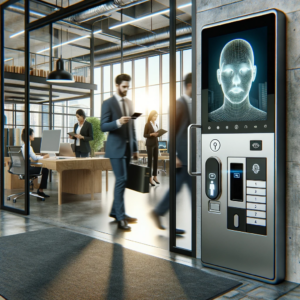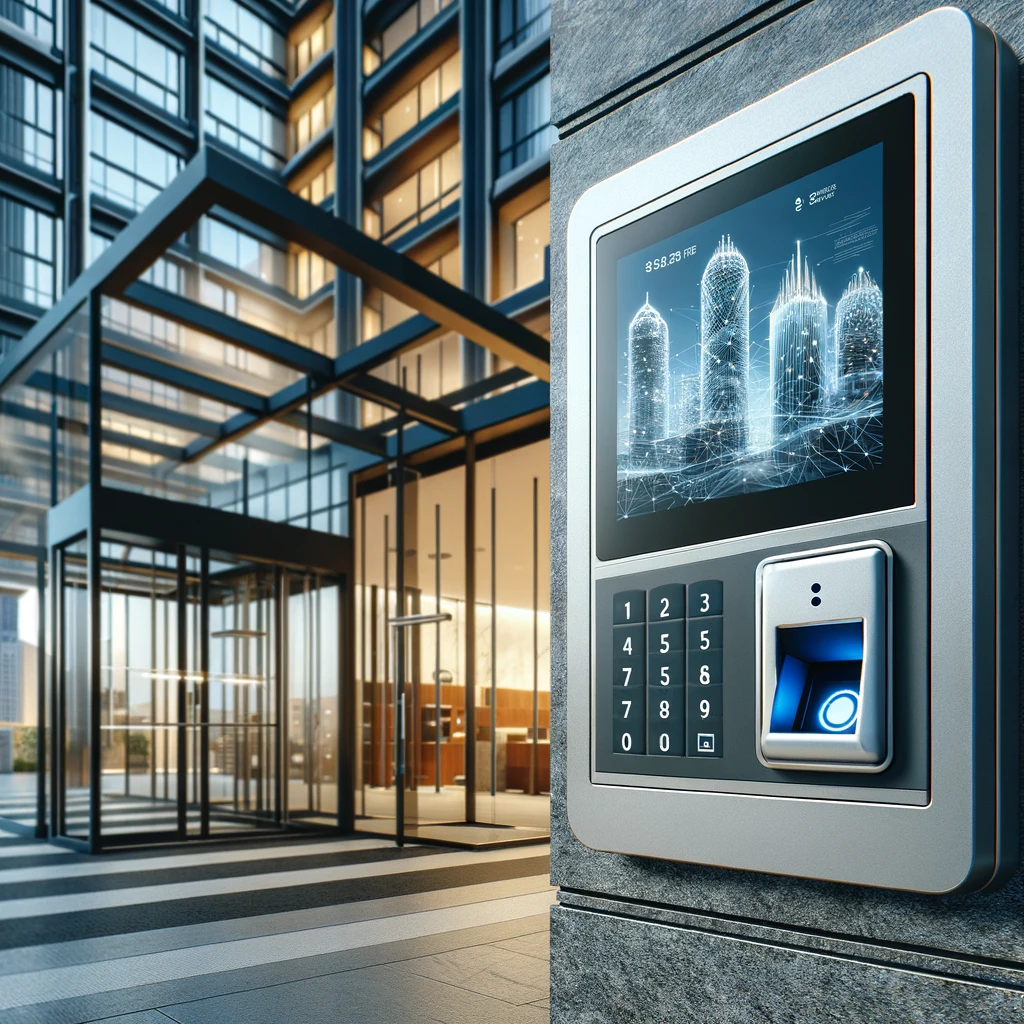Introduction
Navigating the complexities of modern security can be daunting, but with the right tools, it's entirely manageable. Enter the realm of access control systems, a cornerstone of contemporary security strategies. At BCS Consultants, we understand the critical need to regulate entry and exit within various environments, ensuring that only authorized individuals can access certain areas. Whether it's a bustling corporate office or a serene residential complex, the importance of building access control cannot be overstated. Keep reading to find out more about this system, its mechanics, and the compelling reasons for its adoption, all through the lens of enhancing security in our interconnected world.
Security Concerns in Today's World
In the contemporary security arena, we are witnessing an unprecedented escalation in complex and sophisticated threats that challenge our safety and privacy. These threats range widely from digital espionage, aiming to covertly steal sensitive information, to brazen unauthorized access incidents that compromise the sanctity of our spaces. The evolving nature of these challenges renders traditional security measures—once considered robust—increasingly obsolete. Building security access control systems emerge as a vital shield against such vulnerabilities in this context. They represent a fusion of cutting-edge technology and strategic foresight, meticulously engineered to confront and neutralize the spectrum of modern security threats. BCS Consultants is at the forefront of this innovation, offering bespoke access control solutions that are reactive and proactive in securing premises. By leveraging advanced encryption, biometric verification, and sophisticated monitoring technologies, our systems are designed to ensure that only authorized individuals gain entry, thereby fortifying the security infrastructure of any establishment. This strategic deployment is a formidable barrier, safeguarding against the ever-changing threat landscape and reinstating a sense of security and control in our environments.
Understanding Access Control Systems
An access control system for buildings is an intricate ecosystem composed of multiple components that synergize to orchestrate access permissions meticulously. This spectrum encompasses the simplicity of electronic keypads to the complexity of fully networked solutions, each meticulously crafted to create a barrier that filters access to secured zones exclusively to authorized personnel. Whether the goal is to shield confidential information from prying eyes or safeguard individuals' well-being within a facility, these systems employ a comprehensive approach. This involves a layered strategy of authentication to verify the identity of entrants; authorization to grant access based on predefined criteria, and robust audit trails to provide a detailed log of all access events. These elements contribute to a highly secure and efficiently managed environment, ensuring peace of mind for administrators and occupants alike. By prioritizing the integration of these components, an access control system transforms from a mere security feature into a cornerstone of organizational safety and information integrity.

5 Reasons Why You Need an Access Control System
- Enhanced Security: At the heart of any building access control system is to improve overall security. These systems serve as the first defense against potential intrusions by restricting unauthorized access and safeguarding sensitive information.
- Improved Safety Measures: Beyond security, access control systems excel in monitoring and managing visitors alongside offering robust emergency response capabilities. This dual focus ensures a safer environment for everyone within the premises.
- Increased Operational Efficiency: Adopting an access control system streamlines workflow and minimizes human errors, contributing significantly to any organization's smooth and efficient operation.
- Compliance with Regulations: Navigating the maze of industry standards and legal requirements becomes much more straightforward by implementing access control systems. They ensure that businesses meet these standards and maintain compliance with ease.
- Customizable Solutions: The beauty of access control systems lies in their scalability and adaptability. Tailored to meet the specific needs of various environments, these systems offer customizable solutions that grow with your security needs.
Challenges and Solutions
Embracing a new system, such as an advanced access control solution, inevitably presents various challenges. These range from the intricacies of technical integration, where systems must seamlessly mesh with existing infrastructure, to the hurdles of cultural adaptation, requiring staff and stakeholders to adjust to new operational norms and practices. However, at BCS Consultants, we view these obstacles not as barriers but as stepping stones towards innovation and improvement. We advocate for a proactive approach, emphasizing the importance of engaging with all stakeholders, educating teams about the benefits and workings of the new system, and carefully selecting solutions that are robust, secure, scalable, and adaptable to future needs. This philosophy ensures that we, alongside our clients, are always moving forward, leveraging continuous improvement, and keeping pace with industry best practices. By doing so, we guarantee that your access control system is not just a solution for today but a resilient foundation for tomorrow, capable of evolving in response to the ever-changing landscape of security threats and technological advancements.
Future Trends in Access Control
The horizon for the future of building security access control systems gleams with potential, driven by rapid technological advancements and the seamless integration of emerging technologies such as artificial intelligence (AI), biometrics, and the Internet of Things (IoT). These cutting-edge innovations are set to revolutionize how we conceive of and implement access control, offering enhanced intuitiveness and operational efficiency and significantly elevating security protocols to previously unattainable levels. The integration of AI promises smarter, more adaptive systems capable of learning and evolving to counteract emerging security threats. Biometric technologies offer a personalized layer of security, making unauthorized access increasingly difficult. Meanwhile, IoT integration ensures a more interconnected and responsive security ecosystem. At BCS Consultants, our enthusiasm knows no bounds as we stand on the cusp of this transformative era. We are not just participants but pioneers, eagerly integrating these advancements into our comprehensive security solutions to meet and exceed the evolving needs of our clients.

Conclusion
In wrapping up, the journey through the intricacies of access control systems reveals their indispensable role in modern security strategies. BCS Consultants stands committed to enhancing the safety and efficiency of your spaces through cutting-edge building access control solutions. As we move forward, these systems' continuous evolution and implementation will be crucial in safeguarding our collective future. We invite you to join us in this journey, embracing the advancements and improvements in access control systems ensuring a safer, more secure tomorrow. Call us at +1 949-333-1000 for more information.
FAQs
Q1: Can access control systems be integrated with other security systems within a building?
Answer: Modern access control systems are designed with integration capabilities that allow them to work seamlessly with other security systems, such as CCTV surveillance, alarm systems, and fire safety systems. This integration enhances security by providing a comprehensive, unified approach to safeguarding the premises.
Q2: Are there mobile-based solutions for access control systems?
Answer: Absolutely. Many access control systems now offer mobile-based solutions, allowing users to utilize their smartphones as access credentials. This increases convenience and adds an extra layer of security through biometric verification and encryption available on many smartphones.
Q3: How do access control systems contribute to energy savings within a building?
Answer: Access control systems can be programmed to control lighting, heating, and cooling systems based on occupancy, contributing to significant energy savings. Ensuring that lights and HVAC systems are only active when areas are occupied can help reduce energy consumption and lower operational costs.


You must be logged in to post a comment.